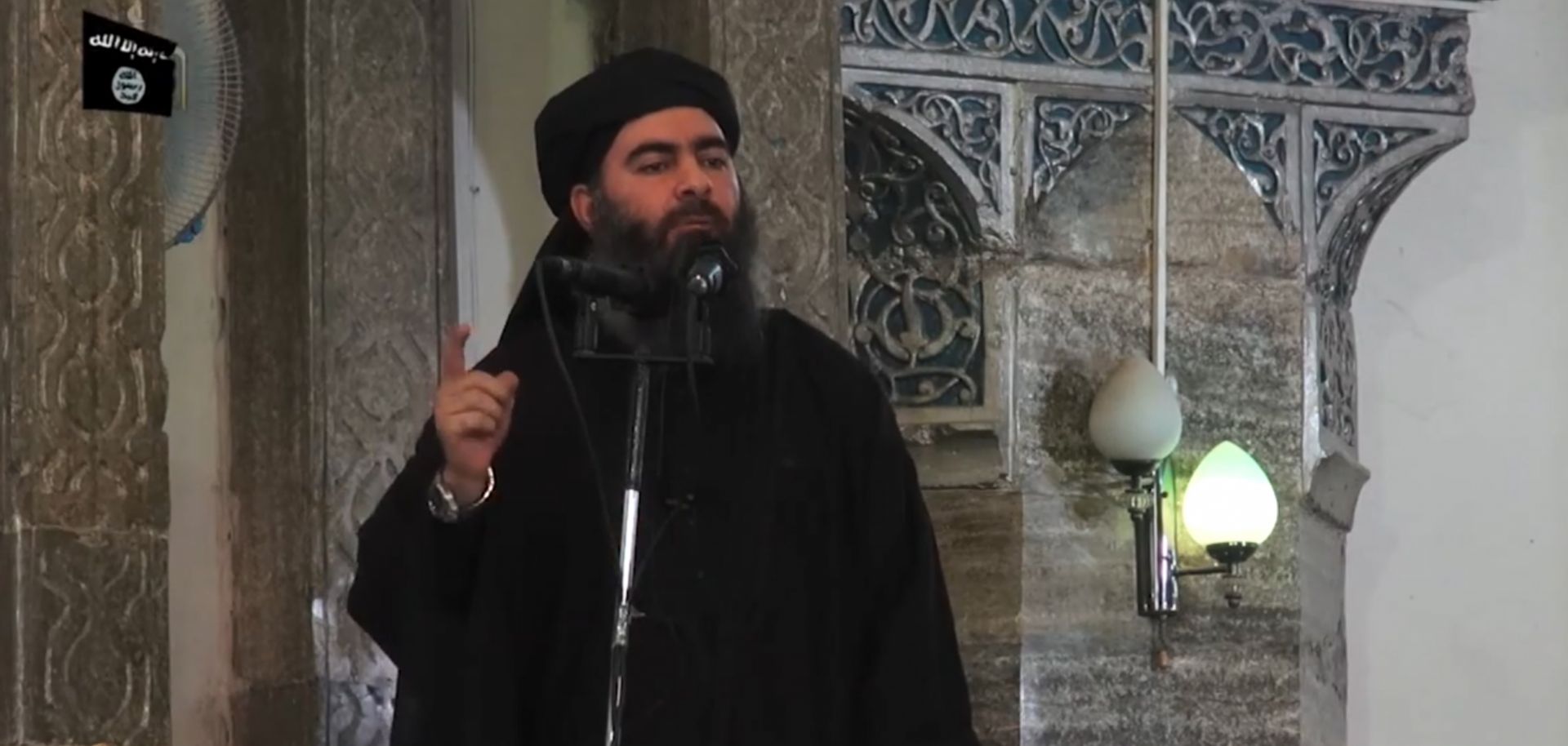COLUMNS
Abu Bakr al-Baghdadi's True Legacy

Oct 29, 2019 | 09:00 GMT

This July 5, 2014, photo shows an image grab taken from a propaganda video released by al-Furqan Media showing Islamic State leader Abu Bakr al-Baghdadi as he declares himself caliph in Mosul. Now that he is dead, al-Baghdadi has left behind a legacy of supreme violence and other barbarity.
(AFP/Getty Images)
Highlights
- The legacy that the deceased Islamic State leader, Abu Bakr al-Baghdadi, has left differs greatly from the one he aspired to.
- Al-Baghdadi oversaw the widening of a rift in the jihadist movement that now often results in open combat between al Qaeda and the Islamic State.
- The militant leader also institutionalized sectarian attacks, the declaration of many Muslims as apostates, extreme violence and the hypersexualization of jihadist activity.
Subscribe Now
SubscribeAlready have an account?
